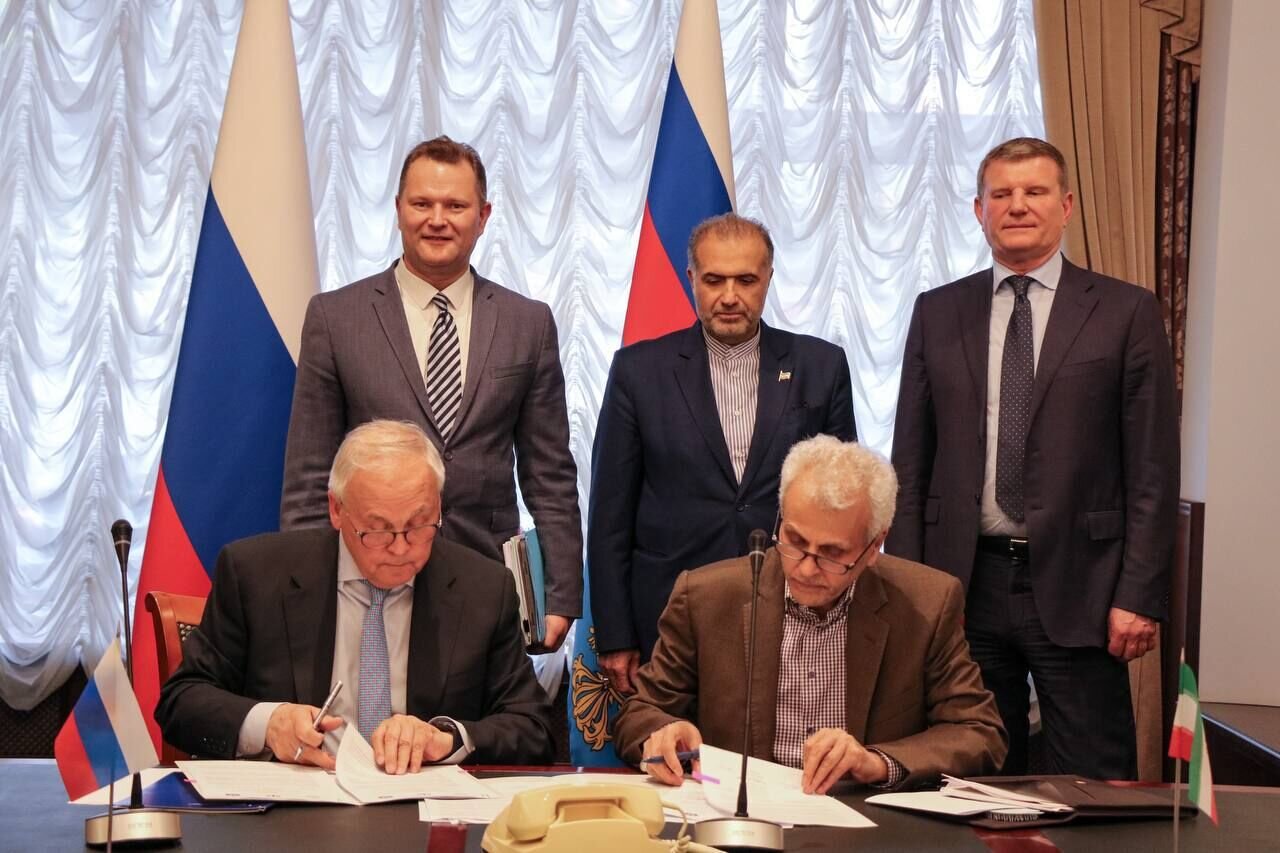Iran, Russia sign transit co-op MOU

TEHRAN- Iran and Russia signed a memorandum of understanding (MOU) on transit cooperation.
The MOU on tripartite cooperation between the Iran Transportation Development Fund, the International Coordinating Council on Trans-Eurasian Transportation (CCTT), and the Economic Development Center of the Commonwealth of Independent States (CIS) was signed in Moscow.
This memorandum of understanding was inked in the presence of Iran’s Ambassador in Russia Kazem Jalali, Russian Deputy Transport Minister Dmitry Zverev, Head of Iran Transport Development Fund Davoud Danesh-Jafari, Director-General of the Business Center for Economic Development Center of the CIS (BC CIS) Vadim Ganin, and Secretary-General of International Coordination Council on Trans-Eurasian Transportation (CCTT) Gennady Bessonov.
Based on this MOU, the signatory parties cooperate with each other to increase trade, transit and storage of goods along international corridors, especially the North-South corridor.
The signatories of this memorandum also emphasized the exchange of information, carrying out joint projects, and exchange of specialized delegations to achieve these goals.
Earlier this month, during a meeting between Iranian Transport and Urban Development Minister Mehrdad Bazrpash and a visiting Russian delegation headed by Igor Yevgenyevich Levitin, a senior aide to the president of the Russian Federation, the two sides emphasized the necessity to boost the transit of commodities through the Caspian Sea.
During the meeting, held at the place of the Iranian Transport and Urban Development Ministry in Tehran on Sunday evening, the two countries emphasized the development of cooperation in the air, sea, rail, and road sectors and "multimodal transportation".
In the mentioned meeting, the Iranian minister considered the development of transportation cooperation between the two countries to be beneficial for both sides and said while the maritime trade between the ports of the two countries has a very long history, the use of the capacity of the active ports of the two countries in the Caspian Sea can be considered for new cooperation.
The senior aide to the president of the Russian Federation, for his part, summarized the expert meetings and the visit of the Russian delegation to the Rasht-Astara railway route and called for the development of transportation cooperation in all areas.
It should be also mentioned that Iran and Russia reached an agreement last year for reviving the idle section of the International North-South Transport Corridor (INSTC) in Iran for expanding transit ties.
The first Russian freight train arrived at Iran’s Sarakhs railway station in Khorasan-Razavi province on the border with Turkmenistan last July to officially launch the eastern section of the INSTC.
The Russian train was allowed into the Iranian border in a ceremony attended by First Vice President Mohammad Mokhber along with transport, oil, industry, and agriculture ministers as well as the vice president for science and technology.
The second Russian transit cargo for India entered Iran also from the northeastern Sarakhs border in October.
Iran and Russia are also cooperating in the maritime sector to use the Caspian Sea to shorten the transit route from Russia to India.
MA
